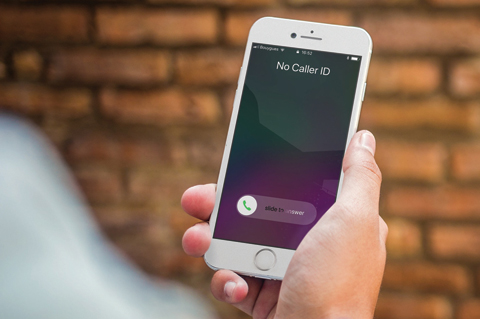Developer believes ban will be temporary, says app helped police arrest criminals
 The Communication and Information Technology Regulatory Authority’s (CITRA) logo.
The Communication and Information Technology Regulatory Authority’s (CITRA) logo.KUWAIT: Recently the Communication and Information Technology Regulatory Authority (CITRA) decided to block caller identification applications for smartphones after some people complained that these applications negatively affected their lives. At first when these apps were blocked, people could still use them if they had proxies on their phones. But two days later, some of these apps decided to stop operating, claiming they had deleted their database, so users won't be able to use them even with a proxy.
CITRA claimed that blocking caller ID applications was due to their violations of the individual's private data, leaving them with security problems such as identity theft, fraud, domestic violence, family disputes and bank thefts. The caller ID applications were very useful for thousands of users, although many people claimed they were offended by these apps. These applications work on using the names registered by people in their contact lists. So when a strange number calls you, you can identify it by how other users have saved this number.
When a user downloads the app, he must agree to the terms and conditions. The terms include access to the user's contact list. As some users have saved certain people's phone numbers in their contact lists with insulting or bad names, these names will appear to others. So some users complained of these embarrassing names that caused them problems.
Although it's not the fault of the app that some users save others' details with these names, it offered complaining users to delete their embarrassing names from the database free of charge. The app also provided the option of appearing invisible to other users and not appearing in a search completely for a nominal fee.
Menodag (who called?) is one of the most popular caller ID apps in Kuwait. It was blocked by CITRA and is no longer working. "I will sue CITRA if their procedure is illegal. Other applications should be blocked and not just caller ID apps, as many other types of apps that are more harmful and in conflict with our traditions and religion are still operating," the developer of the app told Kuwait Times. This decision of blocking the app caused him financial losses. "I completed my obligations towards the advertisers in my app before closing it completely. Yet shutting my app cost me a lot as I can't take any ads," added the owner.
He believes that this situation won't last forever. "I think it's a temporary procedure, as we can't stop the Internet evolution. For instance, there are many other applications and social media programs such as Facebook, Instagram, Twitter and others, where many users have committed violations and these were not blocked. I think that users who violate the law should be penalized and not the media or app," he said.
The developer said that he stopped the app as he respects the law, and refused to comment whether he can reactivate the deleted database again. "This decision of CITRA won't stop me from creating a new app with a similar concept but different look, and I will launch it soon. CITRA's decision only applies to Kuwait and is not an international law," he said. Menodag was useful even for public authorities. "Menodag led to the arrest of many criminals including drug dealers and others, and I cooperate with all public and security institutions in Kuwait to maintain security in our country. This is just my opinion and I'm not against any laws," he concluded.
Kuwait Times contacted three CITRA officials to comment on this matter and answer a few questions, but didn't get any response after a week of waiting. CITRA previously published on its website that it affirms its complete rejection of violations that invade privacy and the protection of personal data. CITRA considered the move to ban caller ID smartphone applications to be a positive objective, since it's related to citizens' privacy, security and safety. CITRA has approved privacy protection regulations to ensure that the personal data of individuals are protected. Sharing private information with third parties is forbidden without the individual's knowledge and permission. Whoever violates the regulation will be legally liable.
By Nawara Fattahova











